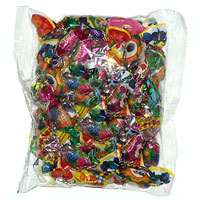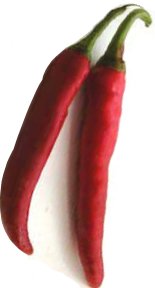Category: "Jokes"
Писать/написать
The verb pair писать/написать means “to write.” Sample sentences:
| Я стихи пишу, только когда мне грустно. | I only write poetry when I'm sad. |
| Вова, не будет мороженого, пока не напишешь бабушке. | Vova, you can't have any ice cream until you write to your grandmother. |
| Мама любит переписываться. Она каждый день пишет одно-два письма. | Mom loves to correspond [with people]. Every day she writes one or two letters. |
| Таня два часа сидела и писала упражнения. | Tanya sat down for two hours and worked on her exercises. |
Note carefully that the с becomes ш when you conjugate the verb in non-past forms; that's called a consonant mutation. Notice also that the а drops out in the present, imperative, and perfective future forms:
| to write | ||
| Imperfective | Perfective | |
| Infinitive | писать | написать |
| Past |
писал писала писало писали |
написал написала написало написали |
| Present |
пишу пишешь пишет пишем пишете пишут |
No such thing as perfective present in Russian. |
| Future |
буду писать будешь писать будет писать будем писать будете писать будут писать |
напишу напишешь напишет напишем напишете напишут |
| Imperative | пиши(те) | напиши(те) |
For some verbs it doesn't matter too much if you get the stress wrong, but it's important to get this one right on the infinitive because if you put the stress on wrong syllable you end up with писать, which means “to pee.” This of course reminds me of a classic joke:
| Столкнулись как-то в туалете студент Оксфорда и студент Кембриджа. | Once an Oxford student and a Cambridge student ran into each other in a bathroom. |
| Оксфордец собрался было выйти, не помыв руки, а кембриджец его спрашивает: «Вас что, в Оксфорде не учили руки мыть?» | The Oxford man was about to leave without washing his hands, and the Cambridge man asks him, “What, didn't they teach you to wash your hands at Oxford?” |
| «Нет, нас в Оксфорде учили не писать на руки». | “No, at Oxford they taught us not to pee on our hands.” |
In Russian the joke is funny not just because of the one-upmanship, but also because писать is a word you expect to hear out of a child, not out of a grown man with an education from one of the world's best schools.
Гулять
The verb pair гулять/погулять means “to take a walk.” It is often used with the preposition по followed by the dative case: «Мы погуляли по парку» “We took a walk around the park,” where “around” means “aimlessly here and there through the park” not “in a precise circle around the park.” In the spread-out cities of the American West people don't take walks so much for pleasure nowadays; you practically have to drive to your own kitchen. But in Russia walking around in the evening or the afternoon is still a big part of socializing.
| После полуночи мы гуляли по берегу Невы, смотрели, как разводят мосты | After midnight we strolled along the bank of the Neva and watched the bridges open. |
That's actually a common thing to do in St. Petersburg. (The bridges have to open to let boats travel up and down the river.) Or you can stroll around the streets of Moscow after the stores have closed, admiring the buildings and enjoying the eternal twilight of Russian summer evenings. Ugh. Did I really just write “eternal twilight”? What a cliché.
Гулять can also mean “to goof off.” A mother might shout at her son «Боря, чего ты гуляешь во дворе? Ты должен быть в школе!» “Boris, what are doing goofing off in the yard? You're supposed to be at school!”
When a Russian mother can't stand having her child inside anymore, she'll also use this word in the context where an American mother might use the word “play”:
| Боря, что ты опять котёнка всунул в печку? Иди, погуляй на улице. | Boris, why did you put the kitten in the oven again? Go outside and play. |
(The phrase «на улице» literally means “on the street,” but the mother isn't saying “Go play in the street” out of some poorly-hidden filicidal wish. Instead «на улице» is one of the standard Russian phrases for “outside.”) Other variations: «Иди погулять» “Go play” and «Сходи на улицу» “Go outside.”
By extension of the “goofing off” meaning, гулять also can mean “to have a good time, party, whoop it up,” which leads us to a joke. It's a joke based on a pun, and puns don't translate well unless the target language has the same duplication of meaning in the punning word as the source language. We'll have to explain it in detail, which means the joke won't be that funny, but what the heck...
| Два алкаша долго искали «третьего». | Two alcoholics had a hard time trying to find a third [to go in with them on a bottle of vodka]. |
| Наконец нашли кого-то и направились в магазин. | At last they found someone and headed to the store. |
| По дороге увидели валявшегося под забором человека. | On the way they spotted a guy lying under a fence. |
| «Ну вот, — расстроено говорит один. — Наши уже гуляют, а мы только идём». | “Well, now,” says one, upset, “our buddies are already whooping it up, and we're only getting started.” |
So why is this funny? Well, the primary meaning of the “whooping it up” word is “to take a walk,” and the phrase translated “getting started” means “walking” (i.e., walking to the store to buy vodka and get started), so in effect, he is saying “our buddies are already walking around, but we are just walking.” And of course the guy they spotted is already so plastered that he's lying under the fence and can't walk. And he is already so drunk that you can hardly say he is whooping it up. And the guys who are about to get equally plastered are feeling envious of the totally unenviable slob lying there on the ground. Now that's funny... um, right? In a kind of pathetic alcoholic way?
Конфеты (часть первая)

The Russian word for candy is конфеты. Russians love to serve candy with tea when guests come over, and many candies are wrapped in very beautiful wrappers that make the table cheerful. A common ingredient in Russian candy is chocolate шоколад and waffles вафли, but of course a wide range of other candy ingredients also exists in Russia.
Each year here in the States my little sister enjoys collecting candy on Halloween and tries to break the record each year by collecting more candy than last year. «В этом году я насобираю больше конфет, чем в прошлом году!» “This year I will collect more candy than last year!” I enjoy walking around with her and looking at all the decorated houses. This year after we came home, my sister counted all of her candy and said «Класс! В этом году я насобирала тысячу двести три конфеты!» “Cool! This year I collected one thousand two hundred and three pieces of candy.”

Don's additional notes: the singular of конфеты is конфета “a piece of candy.” One type of candy in Russia is called ириска, which is a caramel that resembles one of the mini Tootsie Rolls one hands out at Halloween. Which reminds me of a joke:
| В магазин входит старушка и просит одну ириску. | An old woman walks into a store and asks for one caramel. |
| Продавец: Только одну? Почему так мало? | Salesman: Just one? Why so few? |
| Старушка: Ну, гулять так гулять. Дайте две ириски! | Old woman: What the heck, may as well party hardy. Give me two caramels! |
(Source of joke: "Russian Stage Two: Welcome Back!" (textbook) © 2001 by American Council of Teachers of Russian)
Перец (часть первая)

The Russian word for pepper is перец. It means table pepper, which is the ground fruit of piper negrum, a plant of the Indian subcontinent, and it also means peppers like the bell pepper, the jalapeño, and the poblano, which are cultivars of capsicum annum, a plant native to the Americas. The latter are sometimes called chiles (or chilis or chilies or chillies).
The second е in перец is a fleeting vowel. The declension of the noun turns out like this:
| Sg | Pl | |
| Nom | перец | перцы |
| Acc | перец | перцы |
| Gen | перца | перцев |
| Pre | перце | перцах |
| Dat | перцу | перцам |
| Ins | перцем | перцами |
In English we might say "Do you like hot peppers?", but like most food items in Russian, you use перец in the singular when speaking abstractly: «Мама не любит острый перец, а я острое люблю» “Mom doesn't like hot peppers, but I love hot stuff."
The phrase “two peppers” nearly got me into trouble last week. I wanted to verify that one could use перец after numbers to count individual peppers, so I googled the phrase «два перца» “two peppers” and, lo and behold, «у меня на экране появилась всякая порнушка» “all sorts of porno appeared on my screen.” What the devil? It turns out that перец also has slang meanings of “hot guy” or “male reproductive organ.” Oh, dear. That means I accidentally used university resources to… “А вдруг меня уволят?» “What if they fire me?” If you think that's paranoid, you obviously haven't read Kafka's “The Trial.”
Sometimes the slang meaning of the word is simply “guy,” and the phrases "клёвый перец" and "классный перец" simply mean “cool guy.” Here's a non-pornographic joke that uses the word, along with a loose translation. [source]
| Приехали два перца на рыбалку. | Two guys went fishing. |
| Привезли с собой лодку, сети. | They brought a boat and nets with them. |
| Разместились в рыбацком домике. | They set themselves up in a fishing hut. |
| Решили перед процессом немного выпить, ну и … выпили. | They decided to have a bit to drink before [starting] the process, and, well… they got drunk. |
| Один утром просыпается, выходит «до ветру», смотрит, а поле за их домиком всё сетями усыпано. | One wakes up in the morning, goes outside to take a leak, looks around, and the field behind the hut has their nets strewn all over it. |
| Разозлился и побежал будить второго. | He got mad and ran to wake up the second. |
| - Ты что ж, придурок, сети-то по полю раскидал?! | "You idiot, what the heck did you thow the nets all over the place for?!" |
| - А где ты грёб — там я и кидал… | "Wherever you rowed, that's where I threw them…" |
So why is this funny? It's funny because the first was so drunk he rowed the boat on land, plus he couldn't remember doing so the next morning, plus the second was so drunk he threw fishing nets on land without objection.
| de | (spice) der Pfeffer; (vegetable) die Paprikaschote |
| es | (spice) la pimienta; (vegetable) el pimiento, el ají, el chile |
| fr | (spice) le poivre; (vegetable) le poivron |